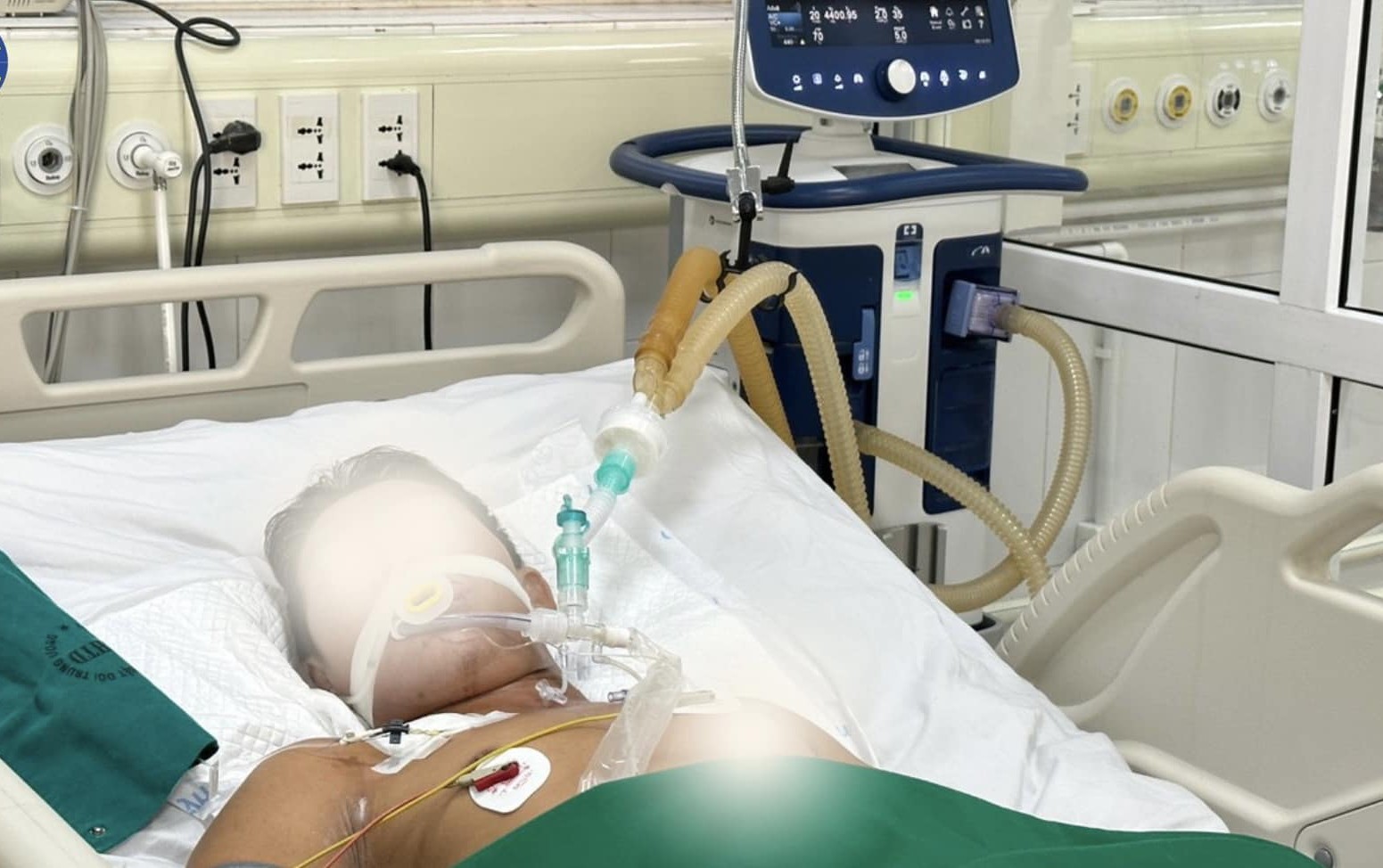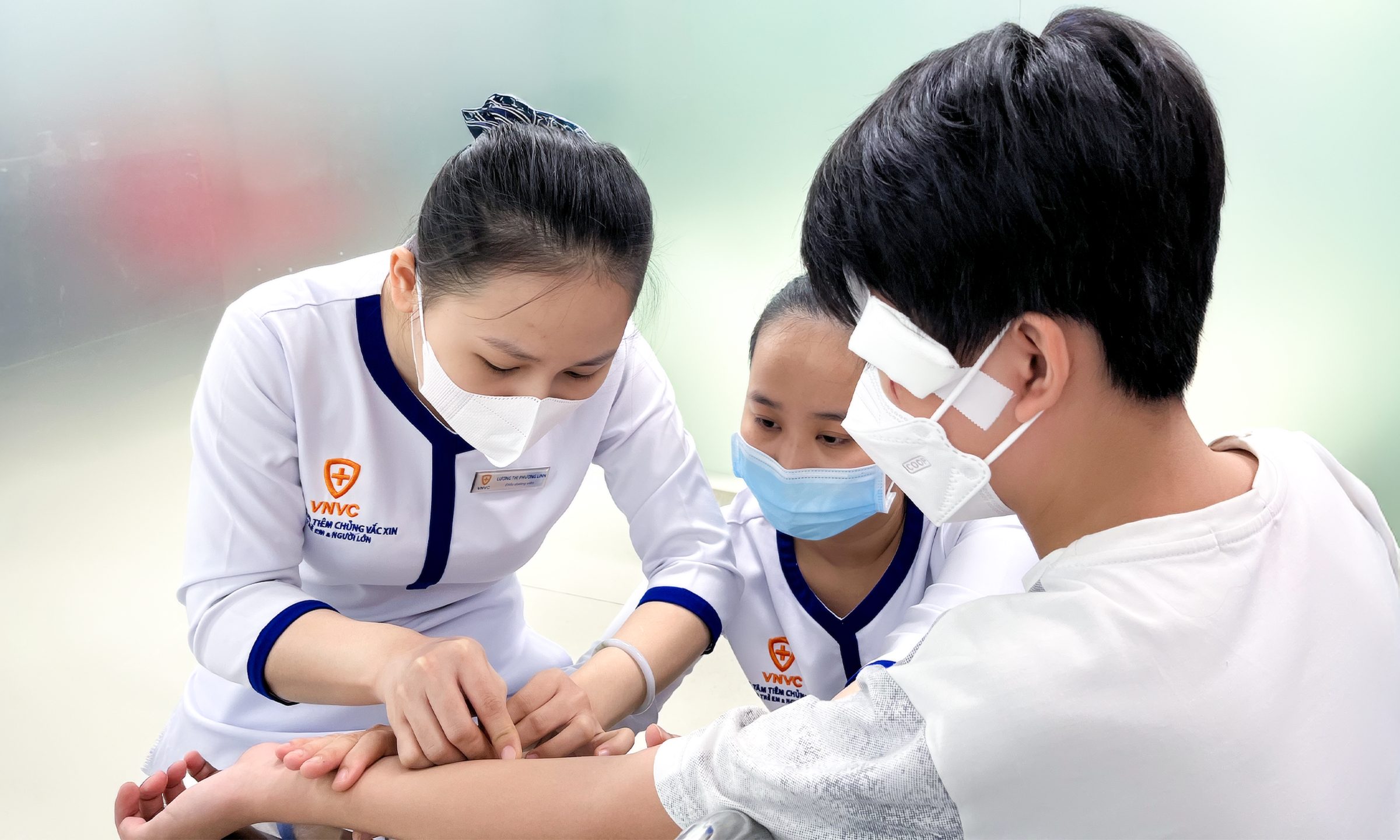According to Doctor Pham Hong Thuyet, Medical Manager of VNVC Vaccination System, hemorrhoids are a common ailment, affecting 30-40% of Vietnamese people. The condition causes bleeding, prolapsed hemorrhoids, itching, and anal pain, impacting quality of life. In later stages, patients require invasive surgical intervention to remove hemorrhoids and stop bleeding.
These procedures should be performed in reputable specialized hospitals. However, due to apprehension, many individuals seek treatment at unreliable facilities or attempt self-treatment, leading to infection complications and the risk of tetanus bacteria entering the body. A typical case involved a 53-year-old man who had a friend remove his hemorrhoids at home. A week later, he experienced jaw stiffness and difficulty speaking and was diagnosed with tetanus. He received treatment at the National Hospital of Tropical Diseases in 2023.
 |
The case of a man who contracted tetanus after having a friend remove his hemorrhoids, treated at the National Hospital of Tropical Diseases. Photo: *National Hospital of Tropical Diseases* |
Similar cases have been recorded globally. A 71-year-old woman in China contracted tetanus in 2019 after having her hemorrhoids banded. She spent over two months in treatment and required physical therapy to recover.
A meta-analysis of 19 reports from the US National Library of Medicine indicated that among 20 individuals who contracted tetanus after digestive procedures, three cases were due to hemorrhoid removal. Digestive tract surgery carries a high risk of creating conditions for tetanus bacteria to enter the body during and after the procedure.
Tetanus bacteria reside in the intestines and are expelled with feces. After hemorrhoid removal, improper wound care can lead to fecal contamination, facilitating bacterial entry into the body.
Doctor Thuyet warned that tetanus bacteria, upon entering the body, cause symptoms such as lockjaw, difficulty swallowing, and muscle pain. Once in the bloodstream and brain, the bacteria disrupt the central nervous system's control functions. Patients may experience high fever and serious complications, potentially leading to death.
To prevent tetanus infection during hemorrhoid treatment, individuals should seek care at reputable medical facilities with qualified doctors. Additionally, pre-exposure vaccination or vaccination after an open wound is crucial.
 |
A nurse at VNVC Vaccination Center performs a tetanus antibody test. Photo: *Dieu Thuan* |
Vietnam currently offers various tetanus vaccines for children from two months of age and adults, including: 6-in-1; 5-in-1; 4-in-1 for diphtheria, pertussis, tetanus, and polio; 3-in-1 for diphtheria, pertussis, and tetanus; and 2-in-1 for diphtheria and tetanus. The vaccines have an efficacy rate of up to 95% when the full dosage is administered.
Children, after completing their primary vaccination schedule, need booster shots at ages 4-6, 9-15, and every ten years thereafter. Adults who have not been vaccinated require at least three booster doses every ten years or after an injury.
If not actively vaccinated, individuals with wounds should visit the nearest medical facility for proper wound care and complete vaccination. Pregnant women should receive the vaccine to protect themselves and their newborns from neonatal tetanus. Maintaining personal hygiene is also essential to minimize infection risk.
Individuals should also prevent hemorrhoids by adopting a healthy lifestyle: consuming a high-fiber diet, drinking plenty of water, avoiding prolonged sitting, exercising regularly, and refraining from smoking.
Cong Nguyen












